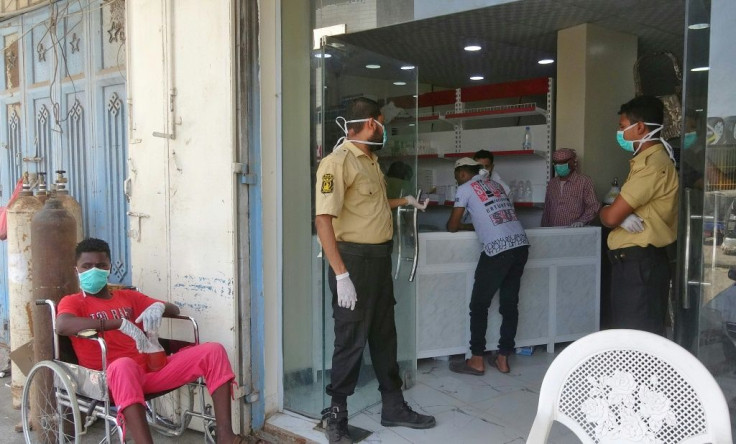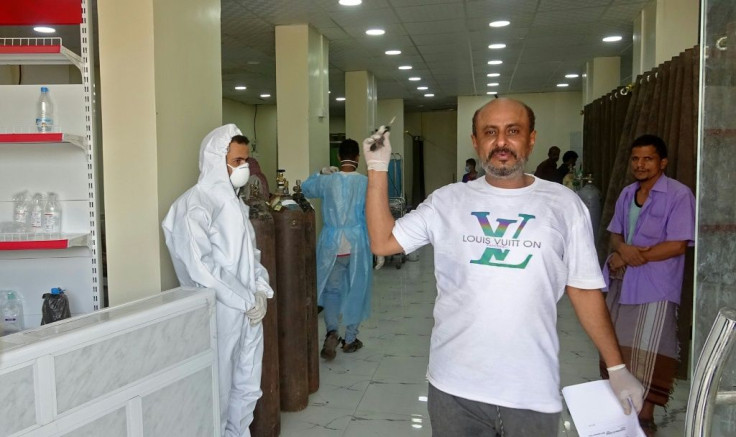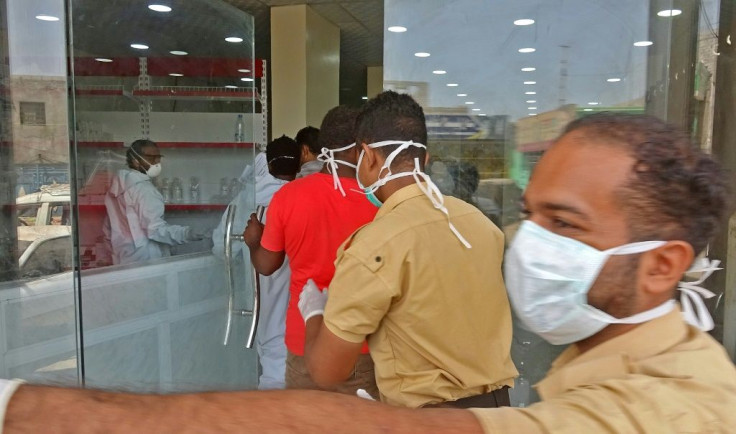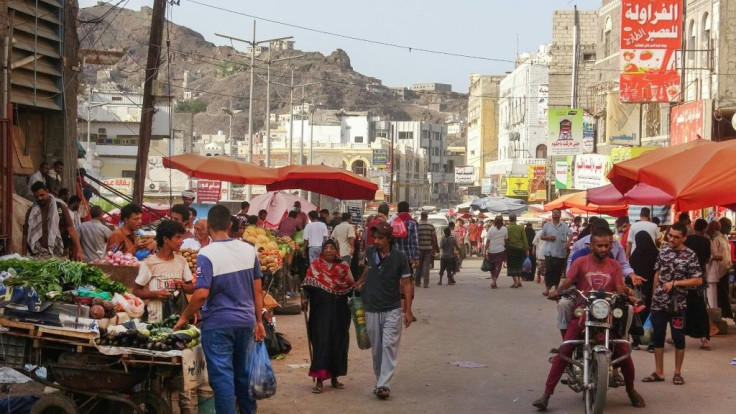Deaths From Coronavirus-like Symptoms Surge In Yemen's Aden
Deaths in Aden have surged to at least five times higher than normal, an NGO and medics say, igniting fears that the coronavirus is spreading unhindered in the Yemeni port city.
Six years of war against the Huthis -- and a widening fault-line among forces opposed to that rebel outfit -- have left authorities ill-equipped to control the spread of the virus.
The first coronavirus case in Aden, the government's interim capital, was only recorded about a month ago.
But since then, the total number of deaths registered in the city has "increased seven-fold", according to Saddam al-Haidari, a physician at a public hospital.

Hospitals have stopped admitting patients with symptoms of the COVID-19 disease caused by the novel coronavirus in recent days, several health sources told AFP, since they are not equipped to deal with the virus.
Many doctors in Aden have deserted their posts because they don't have access to protective gear, these sources added, while several hospitals have even closed down, according to Save the Children.
"Our teams on the ground are seeing how people are being sent away from hospitals, breathing heavily or even collapsing," said Mohammed Alshamaa, Save the Children's director of programmes in Yemen.
"People are dying because they can't get treatment that would normally save their lives."

Save the Children said on Thursday that authorities in Aden have reported an average of 50 deaths per day since May 7.
That's five times higher than the baseline average of 10 deaths a day in more normal times, according to the international aid group.
"In the past 24 hours alone, more than 86 deaths have been reported in Aden due to several epidemics and fevers," said Sanad Jamil, who heads the Civil Affairs Department, which issues death certificates in Aden.
Testing for coronavirus is available only at a central public laboratory, but the supply of kits is insufficient.

That means many suspected cases have not been tested, according to Yasser Bamallem, a doctor at the Al-Jumhouriya public hospital.
Bamallem is in no doubt about what is driving the rising death rate, because before expiring, many displayed symptoms in line with COVID-19 and distinct from other illnesses.
"With the spread of coronavirus, the death rate surged," he told AFP.
"We were already fighting against dengue fever and chikungunya, which are transmitted by mosquito bites -- but deaths were very few," he explained.

"We are on the verge of a catastrophe in Aden."
Yasser al-Nassiri, director of the private Al-Kubi Hospital, said that the closure of other hospitals has put pressure on his facility.
His staff are receiving 400 patients daily, up from 150.
Yemen's health system has all but collapsed since the conflict broke out in 2014, with more than two thirds of the population dependent on aid for survival, according to the UN.
The main theatre of Yemen's war pitches an internationally recognised government, supported by a Saudi-led coalition, against the Iran-backed Huthi rebels.
The Huthis stormed the capital Sanaa in September 2014 and Aden was set up as the government's interim seat months later.
But tensions between southern separatists and the central government have further muddied the waters, with the self-proclaimed Southern Transitional Council declaring self-rule in the south on April 26.
Fighting between pro-government troops and separatist forces on the outskirts of Zinjibar, some 60 kilometres (35 miles) from Aden, has killed more than 20 since early May (those numbers don't feed into the death tolls quoted above).
Nassiri said authorities are not paying enough attention to the health crisis, blaming the recent flareup in fighting in the south.
Aden, home to 550,000 people, has taken virtually no preventive measures against the pandemic.
There are no quarantine facilities for those who do test positive in the city.
"The situation in Aden has got out of control and is expected to implode further based on the number of daily deaths and cases," Bamallem lamented.
At least three doctors have died since May 7, the local Al-Ayyam daily cited authorities as saying, but without giving the cause of the death.
Yemen's internationally recognised government has so far declared only 122 confirmed novel coronavirus cases, including just 18 deaths.
Tens of thousands of people, mostly civilians, have been killed in the country's war, which the United Nations views as the world's worst humanitarian crisis.





















